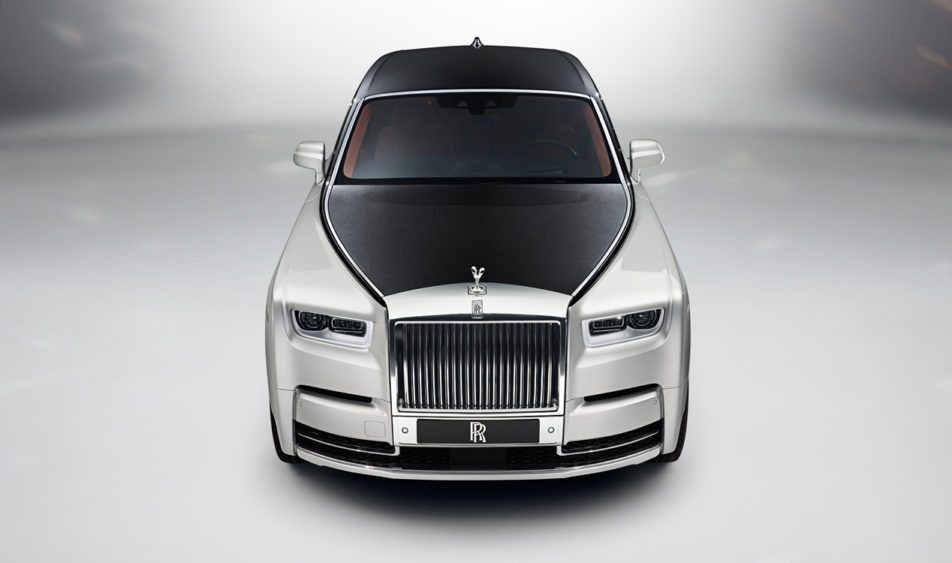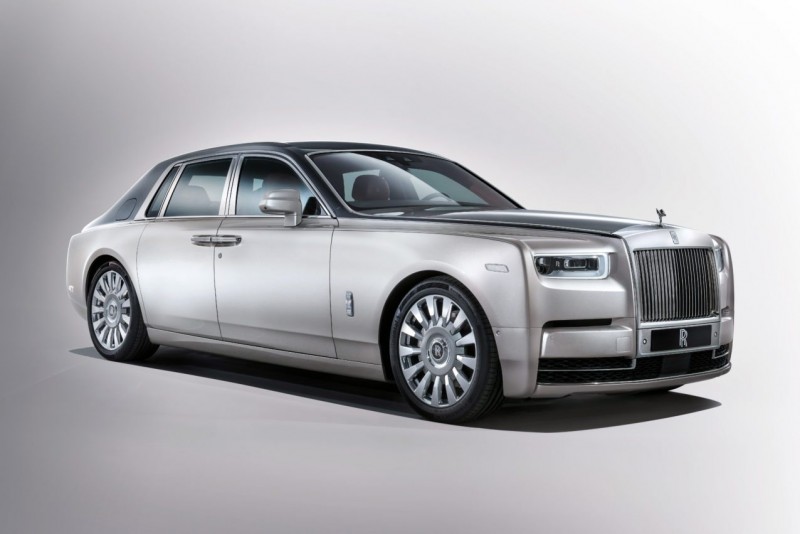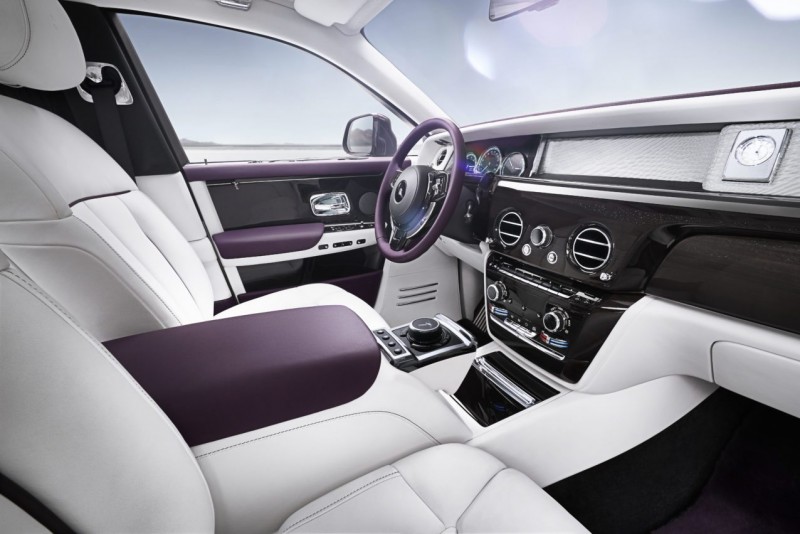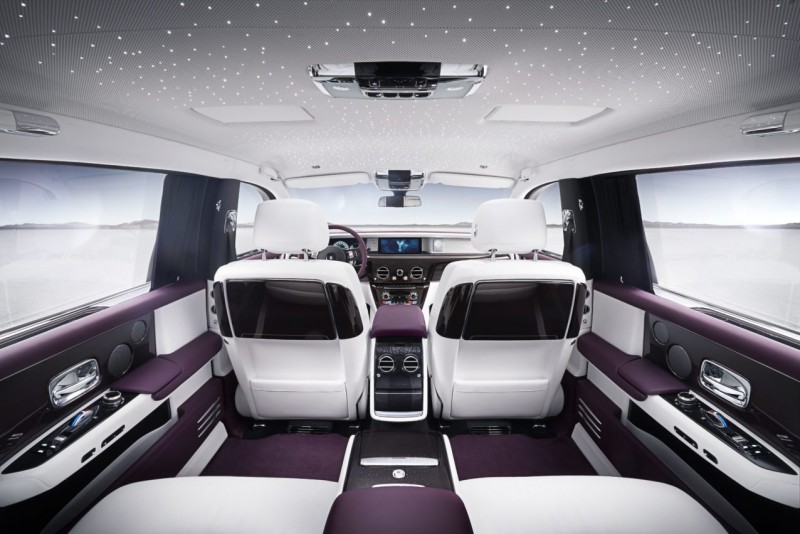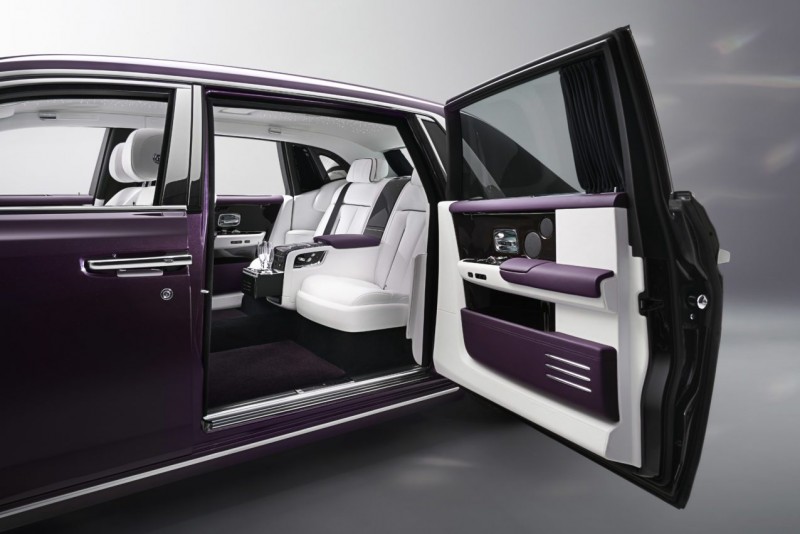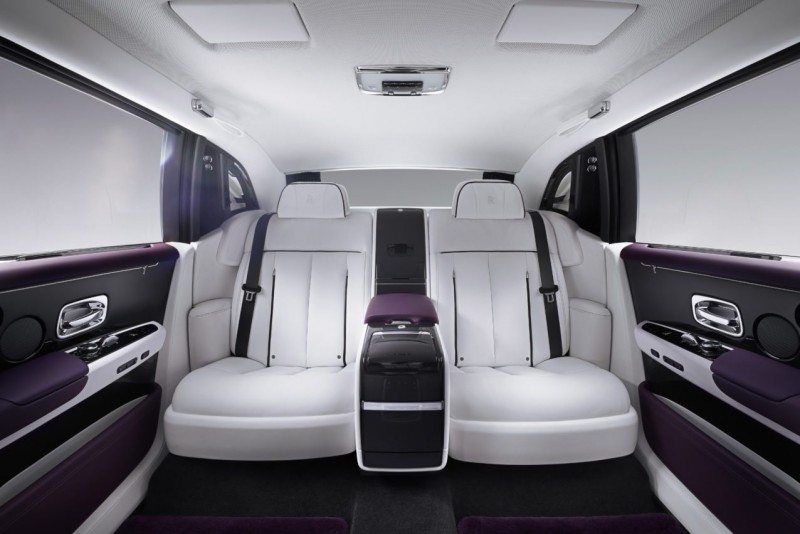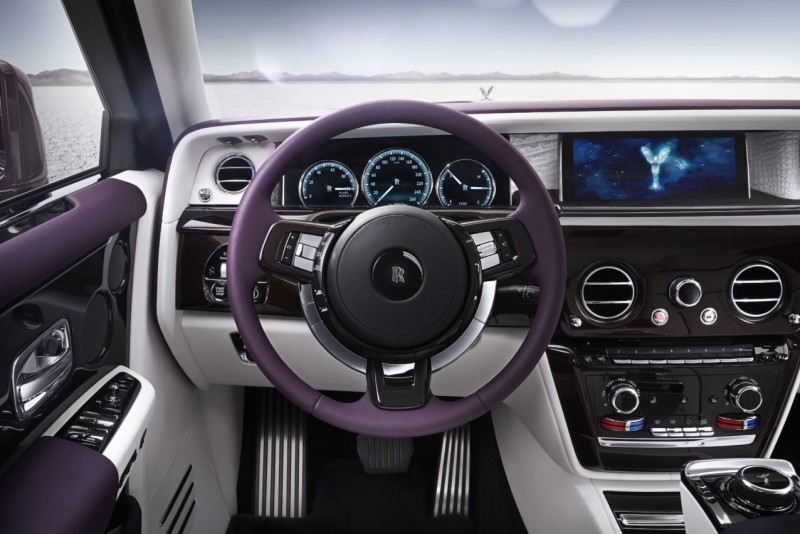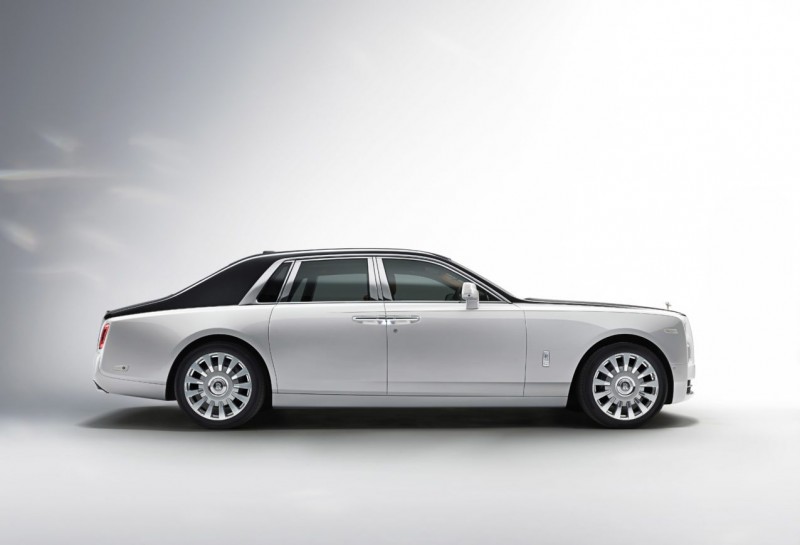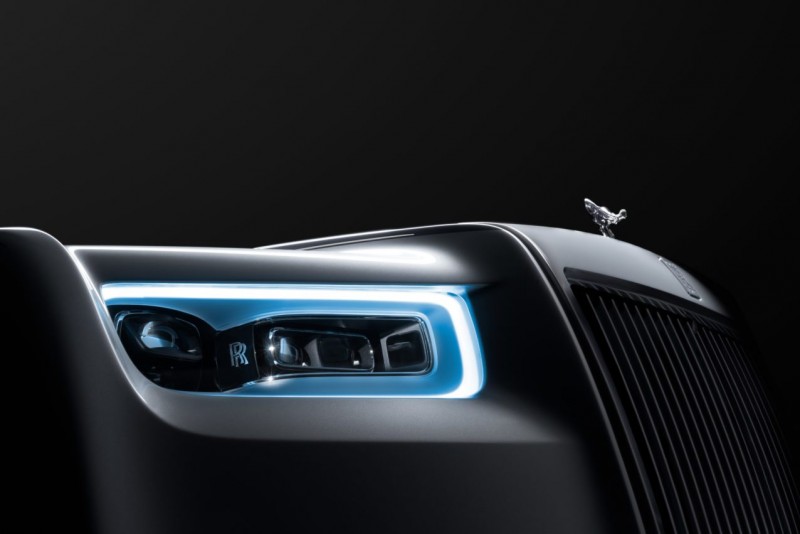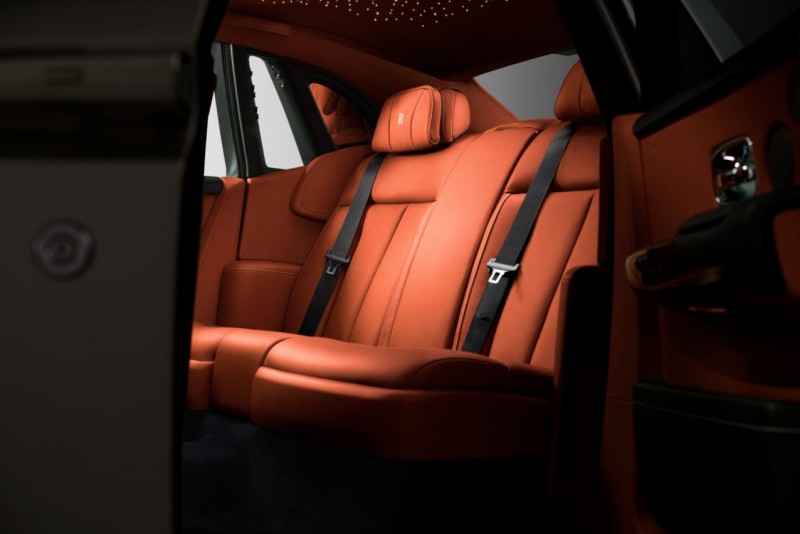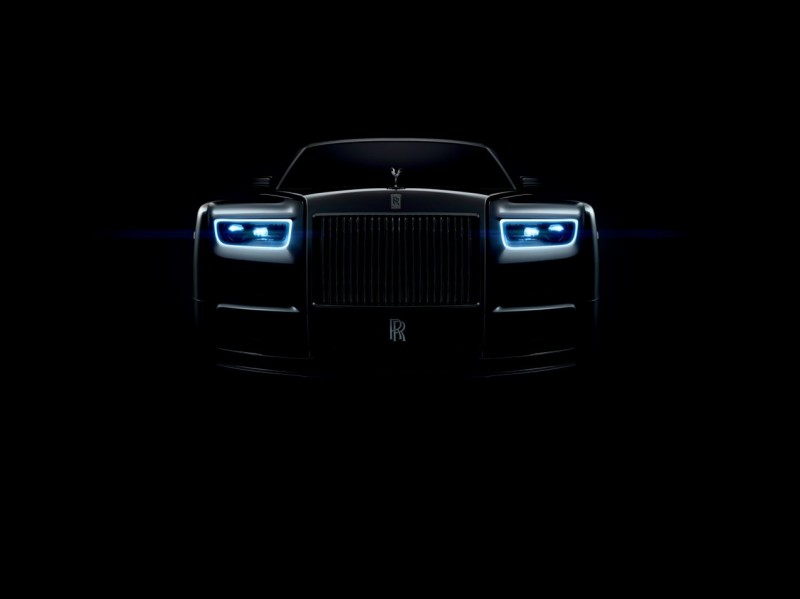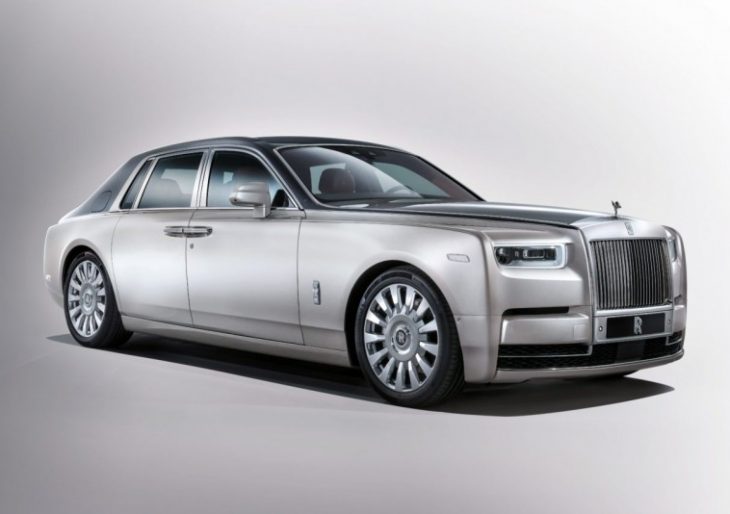Rolls-Royce has finally revealed its new Phantom VIII. After much laying of marketing groundwork over the previous months, which included the usual teaser campaign, the car has been rolled out as RR’s top production vehicle, with a sticker price of $450K . The Phantom VII was unveiled in London, capping an extended model-specific promotion intended to define the model in a historical context, with the Phantom VIII representing—implicitly—the crowning achievement of the company.
The company’s press release proclaims the model to be ‘the most silent car in the world’; forgive their PR writers the tautology, they’re excited! And, despite the impossibility of a greater or lesser degree of silence, the car’s sound dampening talents border on the unbelievable. Unheard of, perhaps.
From the perspective of automotive design, and most silence too, the most interesting feature of the new Phantom is the trading of a monocoque for an aluminum space frame. Space frame architecture construction is becoming more and more common on higher-end cars, and track cars too, as it provides greater rigidity while reducing weight. Power-to-weight ratio is improved, and turning dexterity is heightened. RR establishes the space frame as the guiding principle of the Phantom VIII, and calls it an ‘Architecture of Luxury,’ as it provides the basis for the smoother, quieter ride, as well as the basis for future Rolls chassis construction. It may also be seen as a metaphor for RR’s transition into a broad-spectrum luxury brand.
The Phantom VIII’s dash is glass-enclosed; Rolls calls it ‘The Gallery,’ and it is designed as an owner’s display case. The name evokes an art gallery, a venue for an individual statement, building on the ultra-exclusive inlaid decorative flourishes which have distinguished recent special edition Rolls-Royce cars, and have proved wildly popular among target consumers.
As far as smart tech, it looks like the Phantom VIII is very well equipped. It’s outfitted with door sensors which will, at a chauffeur’s touch, automatically ease the door closed with a ‘whisper.’ The car features a 12″ touchscreen, a 7″ heads up display, night vision and vision assist, and collision, lane change, pedestrian, and cross-traffic warnings.
For a powerplant, the Phantom VIII gets a new, 6.75L V12. Naturally aspirated, you might assume, as in the previous Phantom. But it’s actually twin-turbocharged. The design gives the car a horsepower rating of 563, providing 664 lb-ft of torque. Despite additional sound dampening, and other weight gain, the space frame compensates and leaves the more powerful Phantom VIII just a few pounds heavier than the 2017 model. The eight-speed gearbox is satellite aided, as in the Wraith; GPS info is used to allow the car to compensate for road conditions as they happen.
What else can be said? The car is typically spectacularly beautiful, an extroverted, forceful statement of arrival. Which is what a Rolls-Royce has always been.
